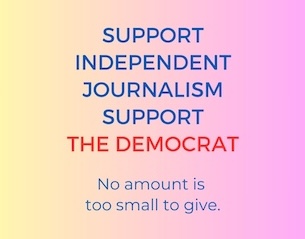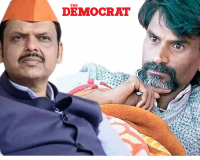- Editorial
- Editorial By Rahi Bhide | Reservation Becomes a Test for the Government!
Editorial By Rahi Bhide | Reservation Becomes a Test for the Government!
Maratha Quota Creates Political Dilemma

By Rahi Bhide
The Maharashtra government is now facing the consequences of how burdensome the promise of reservation can be. The storm led by Manoj Jarange has hit Mumbai, triggering political chaos. Leaders like Devendra Fadnavis, Eknath Shinde, and Ajit Pawar are in power, and earlier promises to grant reservation to the Maratha community are now under pressure. If the government provides reservation following the community’s aggressive stance, it risks alienating OBC votes. Jarange insists that the Maratha and OBC categories are one and the same, prompting the government to explore ways to resolve this impasse.
Manoj Jarange Patil, the face of the Maratha reservation movement, began an indefinite hunger strike at Azad Maidan, Mumbai, on Friday. He warned that he would not back down until the government meets the community’s demands. His ultimatum — “Either give reservation or shoot me or let me die on the hunger strike” — is becoming a major challenge for the Mahayuti government led by Fadnavis. Jarange demands that all Marathas be issued Kunbi certificates under the OBC category.
After the Maratha community took to the streets under Jarange’s leadership, the OBC community also began demonstrations, fearing the division of their quota. There’s a perception that OBCs are being supported by Fadnavis, fueling tensions. Jarange and other agitators are now targeting him, while Fadnavis insists that his cabinet’s subcommittee is working on a constitutional solution.
Jarange has led this movement for years and calls this his “last battle,” vowing not to step back until Marathas are included under the OBC quota. Aggressive remarks by leaders like Adv. Gunaratna Sadavarte, Prof. Lakshman Hake, and Gopichand Padalkar have further inflamed sentiments, complicating the situation. The government’s image is at stake as such rhetoric escalates conflicts.
Jarange’s demand for all Marathas to be issued OBC certificates cannot be ignored — nearly 5.4 million people have already received Kunbi certificates due to his movement. The committee led by Justice Sandeep Shinde reviewed historical records, including the Hyderabad Gazette, and verified community ties like intermarriage to support these claims.
Currently, OBCs constitute 52% of the population with a 27% quota. If 30–35% of Marathas are added, it could leave 85% of the population fighting for the same quota, intensifying opposition. This has led to a growing divide between the Maratha and OBC communities.
Interestingly, the Muslim community has also demanded reservation for Marathas, recalling recommendations like the Rane Committee’s proposal for a 5% quota, which was never implemented. Similarly, Fadnavis had promised inclusion of the Dhangar community among tribals but failed to deliver even after two terms.
With various communities unsettled, the government faces a daunting challenge in navigating social and political complexities. The Maratha community, making up nearly 33% of Maharashtra’s population and facing socio-economic disadvantages, seeks fair representation in jobs and education.
The movement under Jarange has presented multiple hurdles for the government. Besides anger stemming from past incidents like the Kopardi rape-murder case, opposition from the OBC community and support from rival parties like Congress, NCP (Sharad Pawar), and Shiv Sena (Uddhav Thackeray) is putting additional pressure on the ruling alliance.
The Maharashtra government’s handling of the Maratha reservation demand could shape its political future, as resolving this sensitive issue requires careful negotiation and consensus-building.










